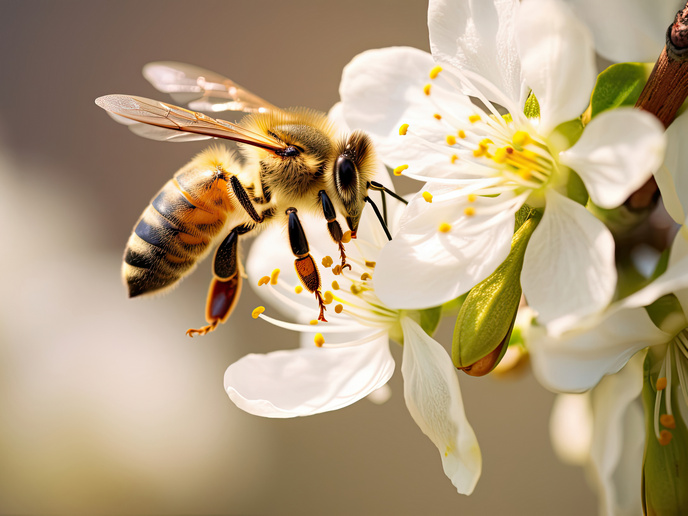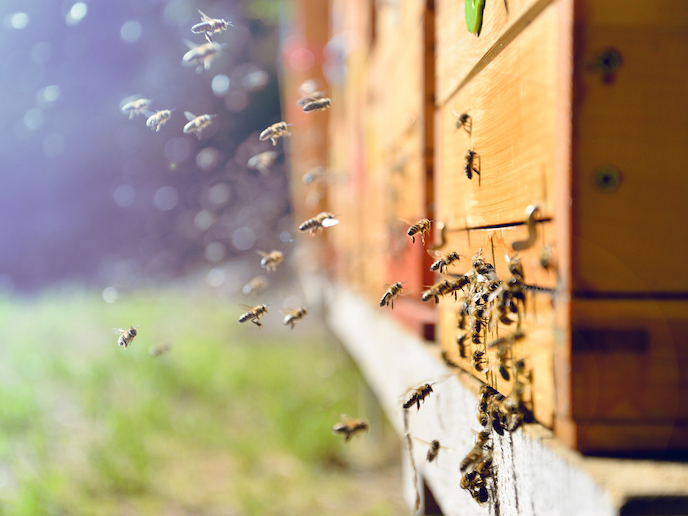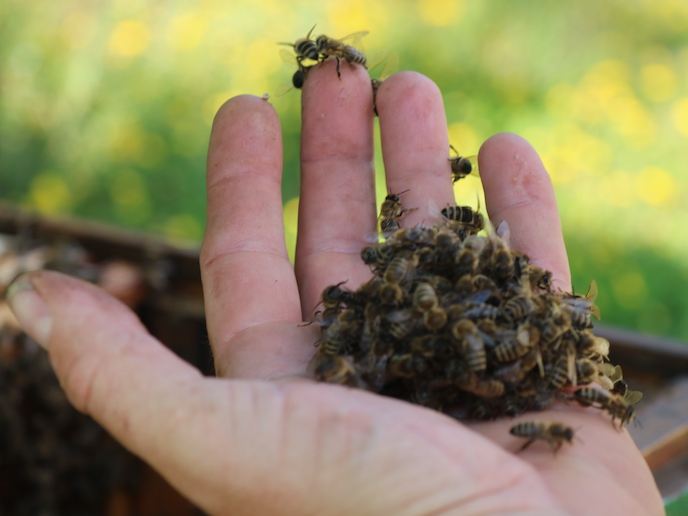Beneficial bacteria and plant extracts promote honeybee health
The humble honeybee punches above its weight. Not only does it provide us with delicious honey, it is also largely responsible for pollinating most of our food crops and trees. In other words, entire ecosystems rest on the wings of bees – which makes the fact that global honeybee populations are decreasing so alarming. “Whether it be the result of climate change, habitat loss, the use of pesticides or pathogens, honeybees have taken a substantial hit over the past decades,” explains Diana Di Gioia(opens in new window), a professor in Agricultural Microbiology at the University of Bologna(opens in new window). With the support of the EU-funded NO PROBleMS(opens in new window) project, Di Gioia and her working team are leading an effort to develop new ways to protect honeybee colonies.
Stopping Nosema ceranae in its tracks
The focus of the Marie Skłodowska-Curie Actions(opens in new window) programme-supported project was on Nosema ceranae (N. ceranae), a parasite that infects the honeybee’s gut cells and, if left unchecked, can cause a colony to collapse. According to the NO PROBleMS team, cases of N. ceranae have been on the rise in Europe. “On the one hand, this parasite becomes more virulent in synergy with other stressors such as insecticides present in the environment,” says Di Gioia. “On the other hand, the EU prohibits beekeepers from using several antibiotics, depriving them of Fumagillin-B, the sole antibiotic for controlling N. ceranae.” Seeing a need for an eco-friendly strategy to protect honeybees, the NO PROBleMS project set out to develop a formulation composed of beneficial microorganisms and plant-derived substances capable of stopping this devastating parasite in its tracks.
Effective solutions for controlling infection
One of the key outcomes of the project is a mixture of beneficial bacteria that has proven effective against N. ceranae. The mixture was tested in the field, with honeybees which received the treatment being marked using a non-toxic paint. The project also researched the use of Hive Alive®, a commercial plant extract blend, in conjunction with the bacteria mix, as an additional means of protecting honeybees. “Both the mixture of beneficial bacteria and its association with the plant extract blend demonstrated an ability to control the infection of N. ceranae in honeybees,” notes Di Gioia. Conversely, researchers showed that veterinary drugs commonly used by the beekeeping sector can contribute to the spread of antibiotic-resistant genes – a noted threat to the environment and other organisms.
The promise of plant extracts and other ingredients
Researchers also investigated the use of plant extracts, microbial fermentation products, organic acids, food chain waste products and fungi as potential means of mitigating N. ceranae. During the study, honeybees were infected with the parasite and then fed a sugar solution containing the active ingredient. “Some of the tested ingredients, particularly acetic acid and various fungi, were effective in controlling N. ceranae and could be used in developing new formulations for fighting the parasite,” remarks Di Gioia.
Helping to stabilise honeybee populations
By opening the door to new, eco-friendly treatments against N. ceranae, the NO PROBleMS project’s work could help stabilise Europe’s honeybee population. “Healthy honeybee populations are the key to creating a competitive European honey market, to ensuring a robust food chain and to pollinating crops, shrubs and trees that serve as a first line of defence against climate change,” concludes Di Gioia. Researchers are currently working to patent their bacteria mix while also seeking investors to help bring the product to market.






